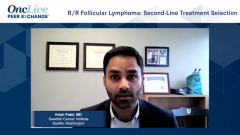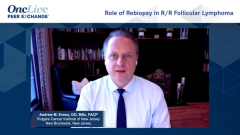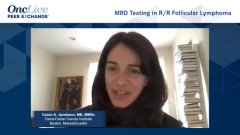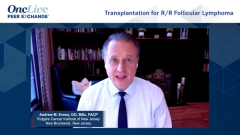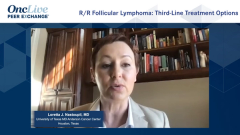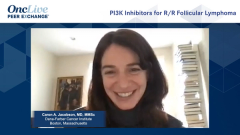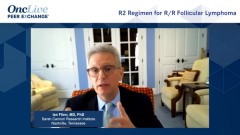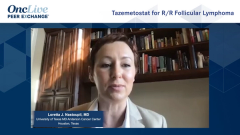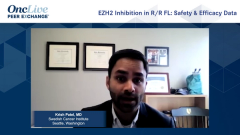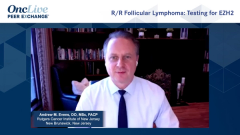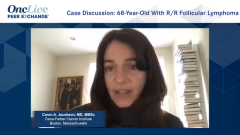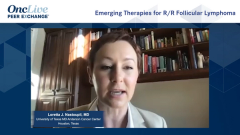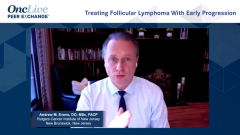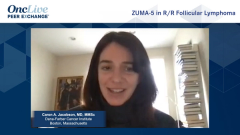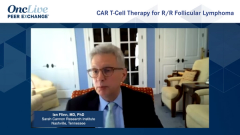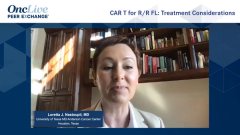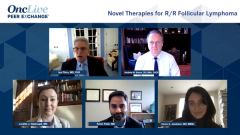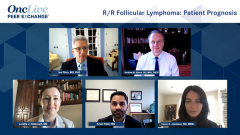
R/R Follicular Lymphoma: Testing for EZH2
Andrew M. Evens, DO, MSc, FACP, of Rutgers Cancer Institute of New Jersey, comments on the rationale for testing for EZH2 mutations in relapsed/refractory follicular lymphoma.
Episodes in this series

Ian Flinn, MD, PhD: Andy, you talked about the FDA indication for tazemetostat and whether you’re mutant. A lot of practical questions about testing for EZH2 come up. One, does it matter? Krish just gave an argument by describing that results are pretty good whether you are mutant or not. But if you want to test somebody for the mutation, does it matter what sample you’re using? Does it matter whether it’s the initial biopsy? Does it matter whether it’s in the relapsed setting? How are you doing this, or are you doing it? Do you bother?
Andrew M. Evens, DO, MSc, FACP: Yeah, we are. Maybe I’m standing on an academic soapbox, where you just like having more information and you like to have that mutational data. But you are right. It’s approved, for the record, even though it’s a wordy approval, regardless of mutation status. I try to look at it in terms of, how does it help you? Even though, yes, the PFS [progression-free survival] or duration of response is similar, between 70% and 30% is a big difference. How I’m thinking about it is, if someone is mutated, that probably follows right behind R2 [rituximab, lenalidomide] therapy for me. In many instances, ahead of PI3 kinase, etc. Whereas if I know it’s not, and I’m confident on that test, I might place it behind PI3 kinase inhibition. Now, I’m not saying it’s number to number. You have to look at other factors, interactions, and toxicities.
In terms of the question of what sample to test it on, at least in talking through guidance with the company and other colleagues who are experts in EZH2, it sounds as if it’s a pretty stable mutation. You are able to test it on archival specimens. So yes, you could do it on a fresh specimen or you could do it on an archival specimen.
Ian Flinn, MD, PhD: That’s my understanding as well. From looking at the data, it appears that it’s a very early event that occurs in the clone and maybe there’s a subclone that comes up that changes the expression. But even in patients who have transformed follicular lymphoma to large B-cell lymphoma, they often maintain that EZH2 mutation.
Transcript Edited for Clarity


